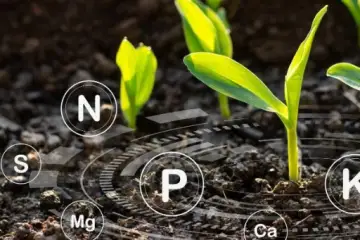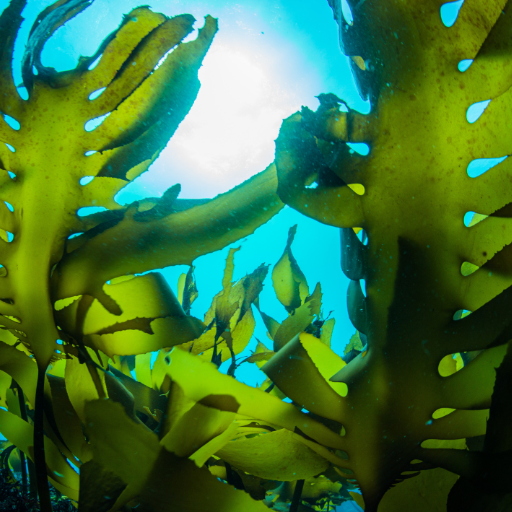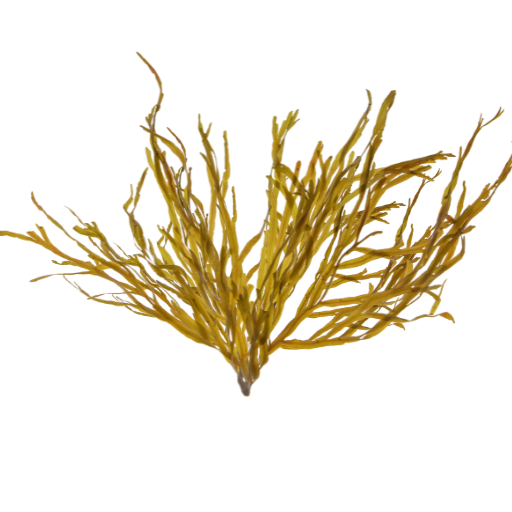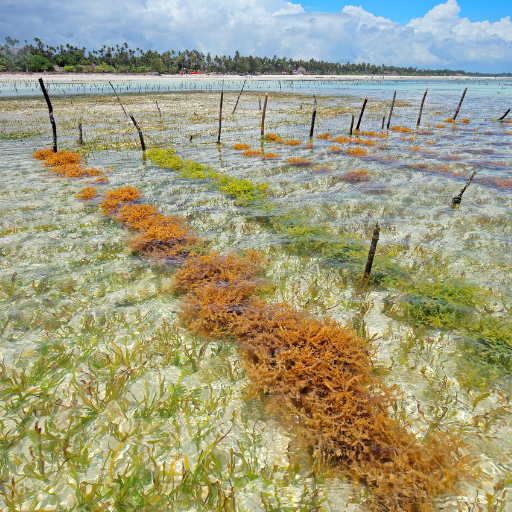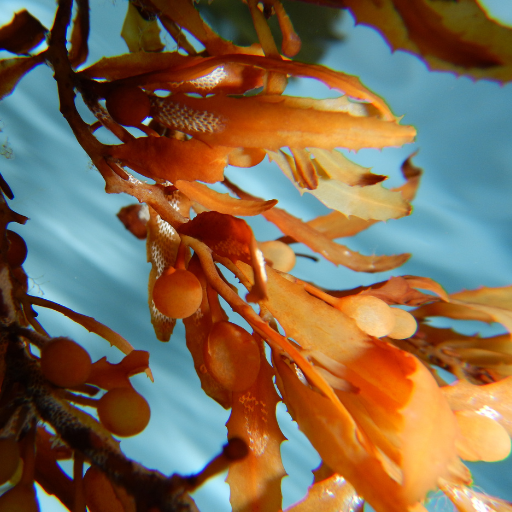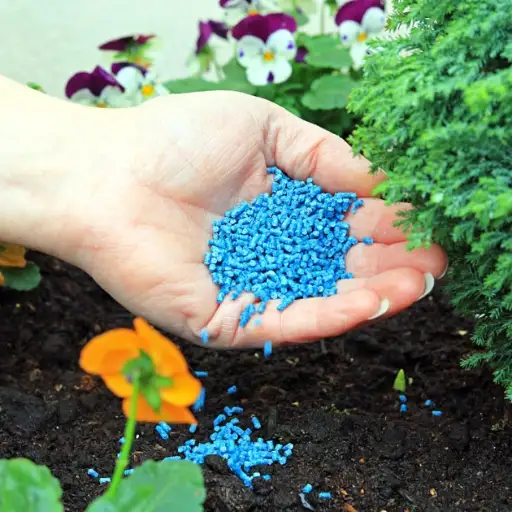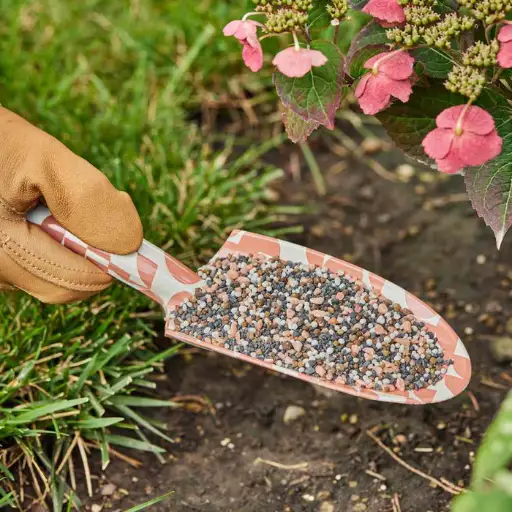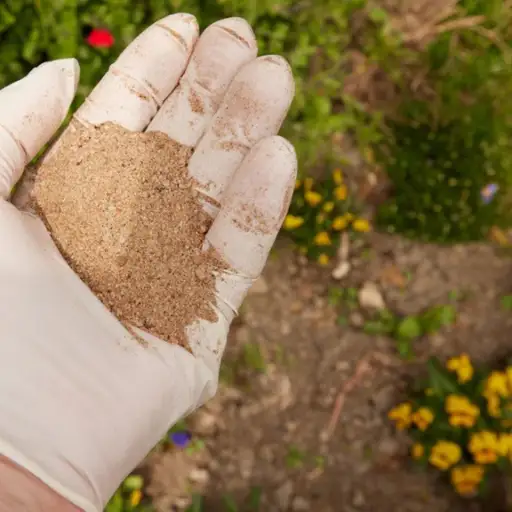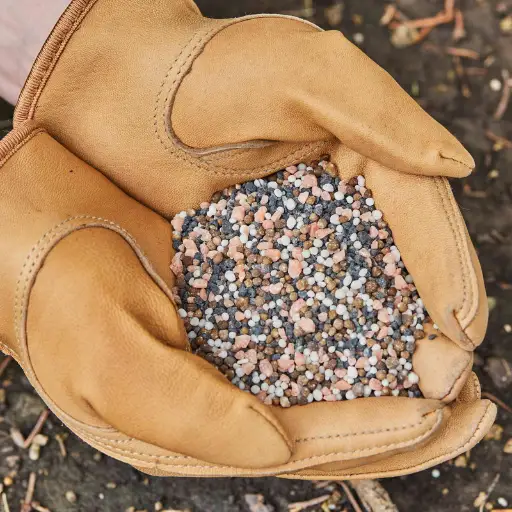Seaweed, a highly valuable marine algae, has been utilized as an organic fertilizer for centuries due to its rich nutrient profile and eco-friendly properties. In this guide, we will delve into the functional benefits and practical application of seaweed fertilizers, examining how they enhance plant growth, improve soil structure, and boost overall agricultural productivity. By understanding the unique chemical composition and bioactive compounds present in seaweed, gardeners and farmers can optimize their use to achieve sustainable and efficient agricultural practices. Whether you are a home gardener seeking to enrich your soil naturally or an agricultural professional aiming to enhance crop yield, this comprehensive overview will provide a detailed framework for integrating seaweed as a potent fertilizer.
What Are the Benefits of Seaweed Fertilizer?
Seaweed fertilizers have numerous agronomic advantages because their high contents of important trace elements, amino acids, and plant hormones. These manures improve the growth of plants by providing minor nutrients like iodine, zinc, and manganese which are commonly deficient in ordinary soils. Furthermore, seaweeds contain development promoters such as cytokinins, auxins, and gibberellins that enhance root growth and cellular enlargement, resulting in stronger, healthier plants. The polysaccharides found in seaweed are good for soil improvement since they enhance water-holding capacity, thus leading to better drainage and promoting useful microbial activities. Besides, the bioactive substances can make plants more resistant against pests and diseases, so chemical pesticides will be less needed, enabling a more sustainable agriculture.
Why Should You Use Seaweed Fertilizer for Plants?
There are several reasons why Seaweed fertilizer is preferred over synthetic fertilizers; these include; balanced nutrition provision as well as soil enrichment with essential compounds that stimulate plant development and maintain a healthy ground condition. Unlike artificial fertilizers, however, seaweed manure is naturally occurring nitrogenous organic matter that improves soil texture by enhancing its water-holding capacity while encouraging beneficial micro-organisms’ activities. Additionally, presence of natural growth hormones in seaweeds accelerates root elongation, among other aspects of plant fitness. It also boosts plants’ tolerance to pests and diseases thereby reducing dependence on chemical insecticides and developing sustainable agricultural practices.
How Does Liquid Seaweed Contribute to Plant Growth?
This paper demonstrates how liquid seaweed influences plant growth through nutrient supply hormonal regulation or stimulation with regard to soil health promotion and general health improvements for both the crop above ground parts as well as those below it. Firstly it has full macro-micro nutrient spectrum including NPK plus other trace elements such as calcium (Ca), magnesium (Mg) and iron (Fe). These highly bioavailable nutrients imply that plants can quickly absorb and utilize them. In addition, liquid seaweed is rich in naturally occurring growth hormones like cytokinins, gibberellins, auxins which are involved in various physiological processes such as cell division, root initiation, flower formation and yield. As an illustration of the role of cytokinins as regulators of plant longevity and productivity they may inhibit leaf senescence while enhancing nutrient mobilization.
Furthermore this liquid seaweed has polysaccharides which enhance soil structure. These compounds increase moisture retention capacity of soils thereby facilitating greater hydration for plant roots. Also such bioactive compounds present in seaweeds enhance resistance of the host plant against pests and diseases by inducing systemic acquired resistance (SAR). A case in point is alginic acid, which is a polysaccharide whose major function is to aid aggregation of soil particles, thus enhancing aeration as well as root penetration. Equally important antioxidants can be found in this liquid seaweed, including polyphenols, which help to alleviate oxidative stress within the plants, resulting in healthier growths.
The above-combined effects make it possible for the application of liquid seaweed to lead to vigorous plant growth, eventually leading to increased yields and sustainable agricultural practices.
What nutrients are contained in seaweed fertilizers?
Seaweed fertilizer is a complete source of important macro and micro nutrients necessary for plant growth and development. Among the main macronutrients found in seaweed fertilizer include Nitrogen (N), Phosphorous (P), and Potassium (K). These macronutrients play significant roles in plant development, for instance nitrogen which is crucial to vegetative growth, phosphorus essential for root and flower development, potassium important for overall plant health promotion as well as disease resistance.
On top of these macronutrients, seaweed fertilizer also contains secondary nutrients including Calcium (Ca), Magnesium (Mg) and Sulphur (S). Calcium gives support to cellular wall structure, Magnesium forms part of chlorophyll-also a component necessary for photosynthesis while Sulfur is essential amino acid synthesis.
Some of the micronutrients in seaweed fertilizers are Iron (Fe), Manganese (Mn), Zinc (Zn), Copper(Cu), Boron(B) and Molybdenum(Mo).These trace elements are important in enzyme activities and different physiological processes. Examples include:
- Iron(Fe): It helps in chlorophyll production through electron transport during photosynthesis
- Manganese(Mn): It plays a role in Photosynthetic oxygen evolution
- Zinc(Zn): Important for auxin metabolism and enzymes
- Copper(Cu): Forms lignin in plant cell walls as well as being one component of several oxidative enzymes
- Boron(B): Essential for cell wall formation along with membrane integrity.
- Molybdenum(Mo): Necessary for nitrogen fixation as well as nitrate reduction.
Optimal supply levels or presence of these minerals ensures balanced nutrition resulting into robust growth improved yields, increased stress tolerance among other environmental conditions affecting plants.
How to Apply Seaweed Fertilizer Effectively?
Effective application of the seaweed fertilizer starts with determining suitable concentration for your plants. Normally, a diluted liquid seaweed concentrate is used and can be mixed with water at a ratio of 1:50. Use fine mist sprayers to distribute the solution uniformly over the foliage, ensuring that both top and bottom leaf surfaces are covered. This method results in fast absorption of nutrients. Soil application on the other hand involves either drenching directly or mixing with water before irrigating your garden using a watering can if you have grown the plants in pots. Additionally, granular seaweed fertilizers can be incorporated in the soil before planting or through top-dressing during the growing season. It’s crucial to adhere to specific product instructions for best outcomes. Regular applications such as every two to four weeks will support healthy plant growth and resistance abilities.
Different Procedures Applied When Utilizing Seaweed Fertilizer
Several methods can employ seaweed fertilizers to improve plant growth and productivity. The first one is foliar spray which requires diluting liquid seaweed extract according to manufacturer’s directions and spraying onto leaves of plants leading to uptake of nutrients quickly along with improved disease control mechanism by applying it directly into its foliage Thirdly, soil drenching entails pouring the diluted seawood solution on soil surrounding a plants’ base leading to enhanced root growths as well as maintenance of good soil quality Finally, granular fertilizers made from kelp when applied into soils while planting or top dressing result into slow-release of nutrient supplement enriching soil fertility thereby promoting continued growth of vegetation Each alternative has its own benefits and may be chosen based on particular requirements,
and agronomic practices for instance recommended rates and timings must therefore be followed so that desired results are attained.
Making Liquid Fertilizer Using Seaweeds
This is an easy technique whereby you transform ordinary seaweed into a highly effective additive rich in mineral compositions useful for sustaining multiple crops . Firstly, collect seaweed and ensure that it is free of any contaminant and rinse it well to remove salt . After cleaning, cut the sea weed into small pieces and place them in a container. Fill the container with water to cover all the seaweeds fully and allow this to steep for several weeks. Occasionally stir the mixture to enhance release of nutrients. Followed by this, sieve the liquid separating solid particles of sargassum or other seaweeds. The extract can be diluted at a ratio 1/10 (one part seaweed liquid to ten parts water) and used as a foliar spray or soil drench. This homemade seaweed fertilizer contains essential minerals, vitamins, growth hormones necessary for healthy growing plants.
Foliar Spraying Using Seaweeds
Sprayers with leaves rich in nutrients contained in Sea weeds are directly applied onto plants’ leaves. Through this method, nutrients can be absorbed into a plant quickly through its stomata leading to immediate outcomes such as better development or higher production of chlorophyll as well as resistance against diseases coupled with environmental challenges such as droughts. To prepare seaweed foliar sprays: dilute 50 times with water according to instructions – apply even sprays over a whole leaf surface using atomizers preferably early morning or late evening because other sources says like these are when there is no sunshade so not much evaporation occurs here.. Frequent applications usually done between two to four weeks between each other significantly increase either strength or productiveness of plants
Choosing the Right Seaweed Fertilizer for Your Plants
One of the most important considerations when choosing a seaweed fertilizer for your plants is their specific requirements as well as soil conditions. Seaweed fertilizers are usually divided into liquid extracts, powders or meal forms. Quick nutrient uptake and easy application makes liquid seaweed extracts ideal for foliar sprays and root drenches. Powders can be made into custom solutions by mixing them with water or applied directly to the soil for slow release of nutrients. Seaweed meal is an excellent long-term soil amendment that improves fertility and structure through enhancing the composition of the soil by nourishing it with dried and ground seaweed forms. To ensure that it aligns with your plant’s nutritional needs, consider the N-P-K (Nitrogen-Phosphorus-Potassium) ratio in that particular product. Also, check out if there are any additional components addressing some deficiencies or enhancing certain areas of plant health.
Comparison between Liquid Seaweed and Kelp Fertilizers
Source and Composition:
- Liquid seaweed fertilizers are derived from various species of marine algae, predominantly brown seaweeds such as Ascophyllum nodosum and Fucus vesiculosus. Giant kelp species, Macrocystis pyrifera, also produce kelp fertilizers, which form part of this category of liquid seaweed fertilizers. The composition of kelp fertilizers may include a range of growth-promoting hormones like cytokinins, auxins, or gibberellins, which positively influence plant development.
Nutrient Profile:
- Both liquid seaweed and kelp fertilizers provide macronutrients (Nitrogen, Phosphorus, Potassium) as well as micronutrients (Iron, Copper, Zinc, Manganese). Nevertheless unlike liquid seaweeds, kelps have more micro-nutrients courtesy of their extensive nutrient absorption abilities.
Application Methods:
- Liquid seaweed fertilizers can be used for foliar sprays, soil drenches, or hydroponic systems. Kelp fertilizers are also appropriate for these uses, especially in foliage applications, as they contain a higher content of cytokinins that improve the absorption of nutrients by leaves and increase plant immunity.
Effect on Plant Growth:
- Research findings indicate that root mass and shoot growth may increase by 20-30% with use of kelp fertilizers compared to untreated controls. Also, liquid seaweed fertilizers stimulate growth but the outcomes can vary more depending on what kind of seaweed is being used and how it was extracted.
Environmental Impact:
- Both types are eco-friendly alternatives derived from renewable marine resources. Whereas regulations governing kelp harvesting ensure ecological balance and prevent overexploitation, those used in obtaining liquid seaweeds are less stringent.
Cost and Availability:
- Liquid seaweed fertilizers are available in many stores and are generally cheaper than kelp-specific ones. This difference in prices is due to the complexity involved during harvesting and processing procedures carried out on giant kelps, which makes them a premium line within this category.
Specific plant requirements, economic considerations, and desired growth outcomes must be considered to make an informed decision about liquid seaweed and kelp fertilizers.
Finding Quality Organic Liquid Seaweed Fertilizer
When looking for quality organic liquid sea weed fertilizer there are several things you need to consider. Firstly, check where the seaweed comes from making sure it is from clean waters without any pollution because the quality of initial substance has direct impact on usefulness of the product itself. Secondly, find out how it was extracted; cold pressed methods retain more nutrients than those using heat processes. Thirdly, look for certification such as OMRI (Organic Materials Review Institute) indicating that it safe to apply in organic gardens. Lastly read reviews left by previous customers about user satisfaction levels as well as performance under real working conditions to determine if this is a good product worth your investment. These steps will help you choose the best liquid organic seaweed fertilizer for healthy plant growth.
Is Seaweed Fertilizer Suitable for Organic Gardening?
Certainly, an eco-friendly gardener can make very good use of seaweed fertilizer. This is derived from natural sea plants to meet the strictest requirements for organic certification. Seaweed manure contains vital nutrients such as potassium, nitrogen and micronutrients necessary for healthy plant growth. Additionally, it enhances soil structure; encourages beneficial microbial activity and increases water holding capacity. With its sustainable sourcing and minimal environmental impact, seaweed fertilizer is a great option for organic gardeners wishing to enrich their soil with the principles of organic farming.
Seaweeds as Organic Fertilizer
Seaweed qualifies as an organic fertilizer because it is natural and rich in essential nutrients. It has a wide range of crucial elements like potassium, nitrogen, phosphates plus trace minerals including magnesium, zinc and iron that support plants’ health. Unlike synthetic fertilizers, which release nutrient rapidly into soils promoting over-fertilization risks leading to sustained plant development instead of early exhaustion. Also contained in seaweeds are natural growth hormones including cytokinins, auxins, gibberellins which promote root development, flowering and all-round vigor in plants. Its usage also improves the structure of soil thus increasing microbial activities that are useful to its status as an organic and ecologically friendly fertilizer.
Seaweeds versus Synthetic Fertilizers
This type of manure surpasses artificial types primarily due to its natural properties and continuous nutrient supply ability. The latter provides immediately, concentrated nutrition but may contain chemicals causing nutrient run-off soil degradation or pollution towards the environment through such mechanisms as leeching (Brett et al., 2007). On the other hand, seaweeds offer slow-release nutrients that could minimize nutrient wastage, keeping long-term sustenance of soils.
Moreover, synthetic fertilizers mostly deal with primary nutrients (N-P-K: nitrogen, phosphorus, and potassium) without considering indispensable micro-elements or any growth promoters present in seaweeds. Seaweed fertilizers contain a broader range of nutrients, including magnesium, zinc, and iron, along with natural growth hormones like cytokinins, auxins, and gibberellins.
Comparing the Technical Parameters:
- Nutrient Release Rate: Synthetic fertilizers – Rapid; Seaweed Fertilizers – Slow and Sustained
- Nutrient Composition: Synthetic fertilizers – Primarily N-P-K; Seaweed Fertilizers: N-P-K plus trace minerals such as magnesium, zinc, iron, and natural growth hormones
- Environmental Impact: Synthetic fertilizers – Potential for runoff and pollution; Seaweed Fertilizers: Minimal environmental impact due to natural origin
- Soil Health: Synthetic fertilizers could lead to soil degradation over time while seaweed manure improves soil structure supporting beneficial microbial activities.
Considering these technical parameters, we can conclude that while synthetic fertilizers may have quick results on crops, seaweed manure offers a holistic approach towards plant feeding and maintaining good soil health. Consequently, for long-term agricultural productivity combined with environmental stewardship purposes seaweed manures are the best option.
Is seaweed fertilizer listed on OMRI?
The Organic Materials Review Institute (OMRI) oversees the listing of products suitable for organic production. In most cases, however, seaweeds are OMRI listed because they meet the requirements set for organic agriculture. The sources of these manures are natural, and their processing ensures organic integrity, thereby making them OMRI compliant. Therefore, many commercialized seaweeds carry the Organic Material Research Institution’s stamp, which assures its users that they are compatible with this method of farming.
Where Can You Buy Seaweed Fertilizer?
There are several online and physical vendors where one can buy seaweed fertilizer. Amazon, a popular option, provides different brands of and formulas for seaweed manure for easy delivery at home. Besides, there are certain gardening based e-commerce websites such as Gardener’s Supply Company that have various types of seaweed fertilizers suitable for multiple planting requirements with expert advice and detailed product descriptions. The Home Depot has many organic and specialty products for gardening on its website including many OMRI listed items that are certified to be used in organic farming.
What Kinds Of Seaweed Fertilizer Can You Buy?
Seaweed fertilizers come in different forms each designed to address specific horticultural needs. The most common types include liquid seaweed extracts, seaweed powder and seaweed meal.
- Liquid Seaweed Extracts: These consist of highly concentrated solutions usually derived from the kelp species Ascophyllum nodosum which can be sprayed onto leaves or drenched into the soil. They are known to be absorbed rapidly by plants leading to instant growth improvements. Technical parameters normally emphasized include high potassium (K) levels alongside trace elements like iron (Fe), zinc (Zn) and magnesium (Mg). Other growth promoting compounds present in these extracts include cytokinins as well as auxins.
- Seaweed Powder: This is achieved by drying and grinding seaweeds into fine particles. It is normally mixed with water creating a liquid fertilizer or directly applied to the soil. The powder possesses all kinds of micronutrients, amino acids, and natural growth hormones thereby ensuring its long shelf life plus ease of storage. Considered technical specifications basically cover nitrogen (N), phosphorus (P) , potassium (K) ratio along with other microelements such as iron(Fe), zinc(Zn) and magnesium(Mg).
- Seaweed Meal: Seaweeds meal unlike powders or extracts is just dried down and ground up seaweeds. It is usually incorporated into the soil or used as a top dressing. Seaweed meal breaks down slowly releasing nutrients for an extended period while at the same time improving soil structure and microbial activity. The main technical specifications concern its organic matter content and contribution to soil health improvements.
These different formulations ensure that gardeners and farmers can find a seaweed fertilizer that best suits their specific agricultural or horticultural needs, exploiting the peculiarities of this nutrient-rich seaweed composition.
What Do Seaweed Fertilizer Usually Cost?
The cost of seaweed fertilizers differs due to the form and brand. Liquid seaweed extracts, generally ranging from $15-30 per liter although premium brands are sometimes more expensive than this range. On average, seaweed powder sells between $10-$25 per pound, which depends on the purity of it and concentration of nutrients. The price for seaweed meal normally fluctuates between $10-$20 per pound. In such cases bulk purchases lower the price per unit making it cost effective for large-scale applications. Pricing may vary due to factors like organic certification, source of seaweed, and additional proprietary enhancements.
Can Homemade Seaweed Fertilizer Be Effective?
Homemade seaweed fertilizer can certainly be effective; it offers the same benefits as store-bought ones. Thus, by picking it on a beachside, rinsing out all salt and either soaking or composting it, homemade gardeners can make a product of their own that is rich in nutrients. This homemade solution contains essential macronutrients such as nitrogen, phosphorus and potassium and valuable micronutrients that improve soil fertility and support plant growth. As an added advantage, seaweed possesses natural hormones that encourage root development while increasing resistance to diseases in plants. Nevertheless, commercial seaweed fertilizers are more convenient and guaranteed than homemade options thereby making them the best alternative to enhance garden soil inexpensively.
DIY Seaweed Fertilizer Recipes
- Seaweed Tea Fertilizer:
- Ingredients: Fresh seaweed, water
- Instructions: Get fresh seaweed from near the shore and wash it well to remove excess salt. Put the seaweeds in a bucket half-way through then add water on top of it. Leave for between 2-4 weeks with occasional stirring. Strain into spray bottle or watering can. Dilute at 1:10 with water before applying directly to roots or leaves for maximum nutrient uptake.
- Seaweed Compost Fertilizer:
- Ingredients: Fresh or dried seaweed, compost materials (leaves, grass clippings, kitchen scraps)
- Instructions: Arrange alternate layers of seaweeds with other compost materials in a compost bin or pile. Mix evenly to ensure balanced decomposition. The composter should also be turned regularly for faster humus production. After several months have passed, use the finished compost to enhance garden soil’s fertility and structure.
- Seaweed Mulch Fertilizer:
- Ingredients: Fresh or dried seaweed
- Instructions: Collect some amount of seaweeds rinse out all salt from it as well as spread it over garden beds covering them evenly with a mulch layer of about two to three inches thick. When seaweeds decompose, the nutrients are slowly released into the soil, which is beneficial for plant growth. Also, the presence of these mulch materials helps in retaining moisture in the soil, suppressing weed and improving soil structure.
Maximizing Benefits from Homemade Seaweed Fertilizers
In order to get maximum benefits out homemade seaweed fertilizers one should know when and how to apply it. The best times for applying include very early mornings or late nights so that there will be no nutrient loss due to either evaporation or absorption by plant roots or leaves respectively. Nutrient levels can be sustained and ensured continuous health of plants if one applies on regular basis like every two weeks during growing season. Additionally, mixing seaweed fertilizers with other organic amendments can result into more stable nutrient rich soils. Furthermore, monitoring soil pH as well as moisture levels will improve this product’s efficiency hence ensuring that plants receive all required nutrients necessary for growth optimization.
Can Seaweed Fertilizer Be Used for Lawns and Gardening?
Yes, seaweed fertilizer can be used for both lawns and gardening. Seaweed contains a rich array of nutrients such as nitrogen, potassium, phosphate, and a variety of trace minerals that can enhance soil health and promote vigorous plant growth. When applied to lawns, seaweed fertilizer helps improve grass resilience, root development, and overall turf health. For gardens, it boosts plant vigor, enhances flowering, and increases fruit production. Seaweed fertilizers also aid in developing beneficial microbial activity within the soil, further supporting plant health and improving soil structure.
How to Apply Liquid Seaweed Fertilizer to Lawns?
Liquid seaweed fertilizer can be applied to lawns using a hose-end sprayer or a watering can for even distribution. Dilute the fertilizer according to the manufacturer’s instructions, usually at a ratio of around 1 ounce per gallon of water. Apply the solution evenly across the lawn, ensuring thorough coverage. It is recommended to apply during early morning or late afternoon to avoid peak sunlight, which can reduce nutrient uptake. After application, lightly water the lawn to help the fertilizer penetrate the soil and reach the grass roots. Regular applications every two to four weeks can provide consistent nutrient support throughout the growing season.
Is Seaweed Fertilizer Effective for Greenhouses?
Seaweed fertilizer is highly effective for use in greenhouses. It promotes robust plant growth by supplying essential nutrients that are often lacking in conventional soil mixes. Seaweed contains growth stimulants such as cytokinins and gibberellins, which enhance seed germination and root development. The concentrated nutrients, including potassium, nitrogen, and trace minerals, help improve plant vitality and resistance to disease. Additionally, applying seaweed fertilizer fosters beneficial microbial activity in the soil, which in turn enhances nutrient uptake and soil structure. Seaweed fertilizer should be applied as a foliar spray or soil drench for best results, following the manufacturer’s recommended dilution rates. Regular usage can increase yield, improve plant health, and improve overall greenhouse crop quality.
What Are the Uses of Seaweed Fertilizer in a Typical Garden?
Seaweed fertilizer serves multiple purposes in a typical garden, enhancing plant health and soil quality. It is rich in essential nutrients, including macro and micronutrients, which aid in plant growth and development. When used as a foliar spray, it can improve photosynthesis efficiency, leading to stronger, greener leaves. Additionally, seaweed fertilizer increases root growth, enhancing plant stability and nutrient absorption. Its use also boosts soil microbial activity, promoting a healthier soil ecosystem. For best results, gardeners should regularly apply seaweed fertilizer, focusing on both foliar and soil applications to maximize its benefits.
Related Literature
-
Source: Frontiers in Plant Science – “Seaweed Extracts as Biostimulants of Plant Growth and Development”
Type: Academic Journal
Summary: Frontiers in Plant Science publishes research articles on various aspects of plant biology and agriculture. This particular article explores the use of seaweed extracts as biostimulants to enhance plant growth and development. It delves into the scientific mechanisms behind seaweed-based fertilizers, their impact on nutrient uptake, and the overall benefits they provide to plants. The rigorous peer-review process of this journal ensures the credibility and reliability of the information presented. -
Source: Gardening Know How – “Using Seaweed As Fertilizer: Tips For Feeding Plants With Seaweed”
Type: Online Article
Summary: Gardening Know How is a trusted resource for gardening tips and advice. This article specifically discusses the benefits and practical tips for using seaweed as fertilizer in plant care. It covers topics such as nutrient content in seaweed, application methods, and the positive effects of seaweed-based fertilizers on plant health and growth. The user-friendly format of the website makes the information accessible to home gardeners and plant enthusiasts seeking to explore natural fertilizer options. -
Source: International Journal of Phytoremediation – “Seaweed Extracts Enhance Plant Growth: A Review”
Type: Academic Journal
Summary: The International Journal of Phytoremediation focuses on research related to plant interactions with environmental factors, including the use of natural products like seaweed extracts in plant growth enhancement. This review article summarizes the current scientific understanding of how seaweed extracts can benefit plants by promoting growth, improving stress tolerance, and enhancing nutrient absorption. The peer-reviewed nature of the journal ensures the accuracy and validity of the insights shared regarding seaweed fertilizers.
Relevant information: Suppliers of Seaweed fertilizer – Find Reliable Sources Here!


